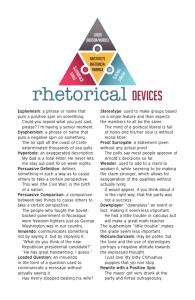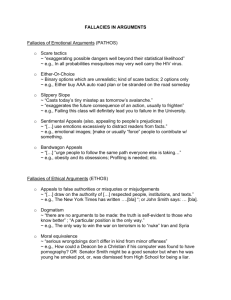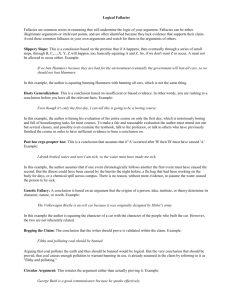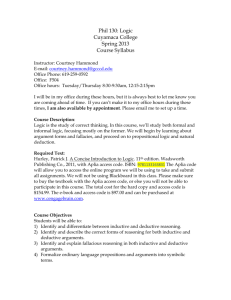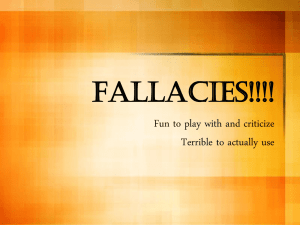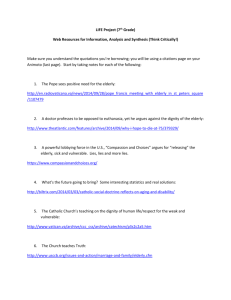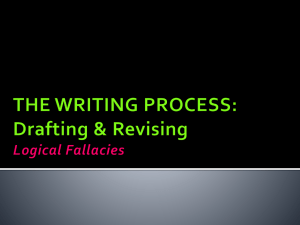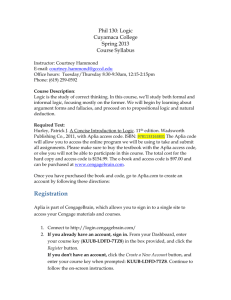Rhetorical Fallacies
advertisement
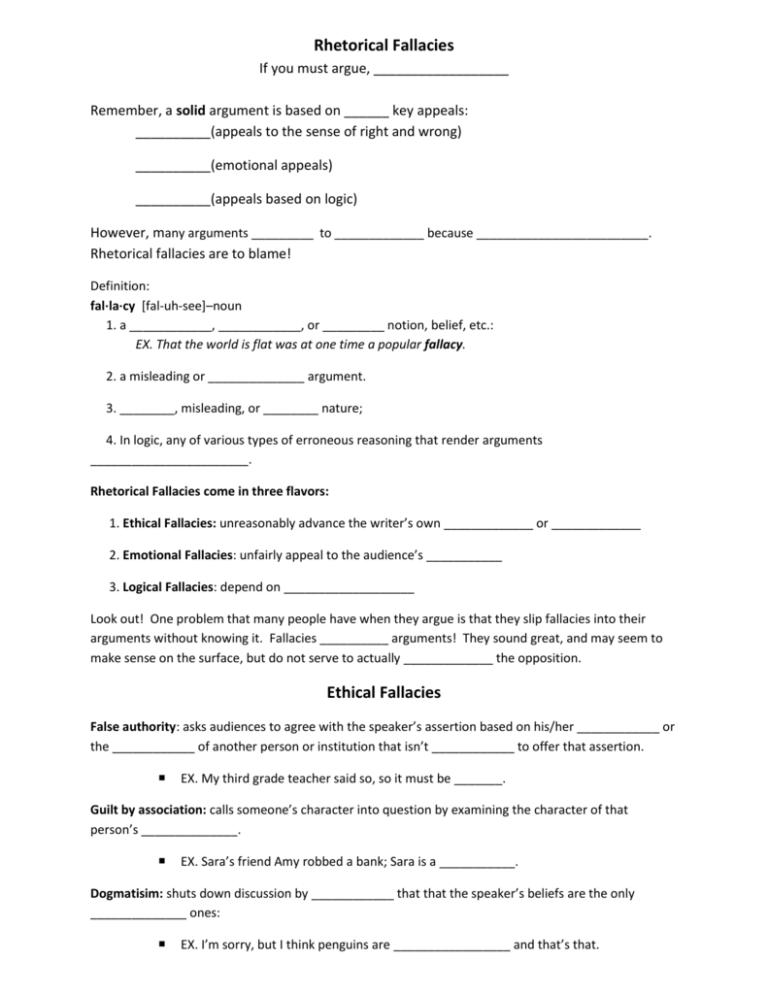
Rhetorical Fallacies If you must argue, __________________ Remember, a solid argument is based on ______ key appeals: __________(appeals to the sense of right and wrong) __________(emotional appeals) __________(appeals based on logic) However, many arguments _________ to _____________ because _________________________. Rhetorical fallacies are to blame! Definition: fal⋅la⋅cy [fal-uh-see]–noun 1. a ____________, ____________, or _________ notion, belief, etc.: EX. That the world is flat was at one time a popular fallacy. 2. a misleading or ______________ argument. 3. ________, misleading, or ________ nature; 4. In logic, any of various types of erroneous reasoning that render arguments _______________________. Rhetorical Fallacies come in three flavors: 1. Ethical Fallacies: unreasonably advance the writer’s own _____________ or _____________ 2. Emotional Fallacies: unfairly appeal to the audience’s ___________ 3. Logical Fallacies: depend on ___________________ Look out! One problem that many people have when they argue is that they slip fallacies into their arguments without knowing it. Fallacies __________ arguments! They sound great, and may seem to make sense on the surface, but do not serve to actually _____________ the opposition. Ethical Fallacies False authority: asks audiences to agree with the speaker’s assertion based on his/her ____________ or the ____________ of another person or institution that isn’t ____________ to offer that assertion. EX. My third grade teacher said so, so it must be _______. Guilt by association: calls someone’s character into question by examining the character of that person’s ______________. EX. Sara’s friend Amy robbed a bank; Sara is a ___________. Dogmatisim: shuts down discussion by ____________ that that the speaker’s beliefs are the only ______________ ones: EX. I’m sorry, but I think penguins are _________________ and that’s that. Ad hominem (character attack) – arguments that attack a person’s _______________ rather than their ________________. EX. Why should think a candidate who recently ______________will keep his campaign promises? Strawman – these arguments ________ and ___________ easily refutable argument in order to ________________ an opponent’s argument in order to defeat him or her Speaker A: We need to regulate access to handguns. Speaker B: My opponent believes that we should ignore the rights guaranteed to us as citizens of the United States by the Constitution. Unlike my opponent, I am a firm believer in the Constitution, and a proponent of freedom. Emotional Fallacies Sentimental appeals: use emotion to ___________ the audience from the facts. EX. The thousands of baby seals killed in the Exxon Valdez oil spill have shown us that oil is not a reliable energy source. Scare tactics: these try ________________ people into agreeing with the arguer by _______________ them or predicting __________________ dire consequences. EX. If you don’t support the party’s tax plan, you and your family will be reduced to poverty. Bandwagon appeals: encourage an audience to agree with the speaker because everyone __________________________________. EX. Eight out of 10 people ____________ that Verizon offers better cell phone service than AT&T. Therefore ___________________________________________________. Slippery Slope: these arguments suggest that one thing will _________________________, oftentimes with ______________________consequences. EX. If you get a B in my class, you’ll never get into college, and therefore will never have a meaningful career. Either/Or choices: reduces complicated issues to _______ possible courses of action EX. The patent office can either approve my new engine design or say goodbye forever to a low emissions car. False need: these arguments create _______________ EX. You __________________ an iPad if ______________________________________. Logical Fallacies Hasty generalization: draws conclusions from ___________ evidence EX. I wouldn’t eat at that restaurant – the only time I ate there. My entrée was undercooked. Post hoc (false causality): these arguments confuse ____________ with __________________, one event can occur without being caused by it. EX. A year after the release of the violent shoot-’em-up game Annihilator, incidents of violence tripled – surely not a coincidence. Non sequitur (Latin for “it does not follow”): is a statement that does not logically relate to what comes ______________ it. An important logical step is missing! EX. "Tens of thousands of Americans have seen lights in the night sky which they could not identify. The existence of life on other planets is fast becoming certainty!" Begging the question: occurs when the speaker simply _____________the claim in a different way; such an argument is ___________. EX. His lies are evident from the untruthful nature of his statements. Faulty analogy: is an _____________, inappropriate, or misleading _______________between two things. EX. Letting prisoners out on early release is like absolving them of their crimes. What do you notice about rhetorical fallacies and modern persuasive techniques?
